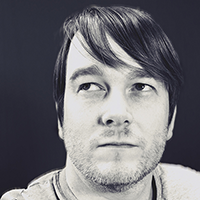Can you contradict yourself?
They say the sign of intelligence is to be able to hold two contradictory thoughts at the same time.

Without realising it, we exhibit an automatic set of beliefs that we use to interact with the outside world. It could be your default beliefs on big issues like politics or climate change. Or it could be smaller beliefs such as whether pineapple should go on pizza or if Android is better than iPhone.
Our brain is a masterful machine that can enact these beliefs without us being consciously aware. We need that for survival. If a belief that a lion will eat us happens to be true, stopping to think and evaluate it before concluding that running away is indeed the better option would be suboptimal for the survival of the human species.
This machine is what also can work against us. As we live in such an increasingly complex world now, where only partial viewpoints are visible at any one time, we are quick to draw conclusions and have an automatic response.
Mention "self driving cars" to some people and before you can finish the sentence you have heard a continuous stream of reasons why it's the worst thing, dangerous, and a problem for anyone and everyone.
We all do this. We all have our inner scripts of our beliefs ready to deploy at any moment. Don't believe me, then pay attention to the replies on Twitter about 'hot topics' and you'll see someone's belief system reply without a second thought.
Pay attention to your automatic responses
Start paying attention to when you speak before thinking. See if you can spot the moments where you've enacted your core belief without any conscious intervention. Pay attention to how other people respond. Do they dig in and try to counter your belief? Or do they agree because you have aligning beliefs on the subject?
Also pay attention to how other people deploy their automatic beliefs in discussions with you. How do you react? Do you counter their argument, or passively agree to avoid confrontation?
But what if you were wrong all along?
Now imagine that there was a belief you had that was actually wrong. You just didn't know it. You didn't have the ability to be aware it was wrong.
We have these beliefs all the time. It could be beliefs about our sense of self worth, whether your boss thinks you're not ready for a promotion, or whether other people have it better than you.
Can you objectively—and without emotion overwhelming your thought process—start to argue against your own belief? Can you do it in a way to try to identify any new perspective or find information that you couldn't see before? Can you hold a seemingly contradictory idea in your head at the same time?
The truth lies somewhere in the middle
We like to see the world in terms of absolutes. Doing so helps us align our thinking to our internal belief system. Our emotions can't be half upset, or half excited. Our ego can't really comprehend being half right and half wrong.
Ask a person what colour the sky is and they will most likely say blue. Then you say "it's not blue, it's red". They won't believe you. Then you show them a photo of a sun setting with the red illuminating the skyline. They will say that doesn't count, because it's actually the sun's colour your seeing.
A contrived example for sure, but it illustrates that when we believe something, we're quick to dismiss countering information. Why? It doesn't align with our belief system.
The truth is usually not at any extreme point. The sky is black at night, blue in the daytime, yellow when the sun is at the horizon, green when the northern lights are showing. There's always more nuance to any discussion that we often miss—because we want to be right.
Can you challenge your own beliefs?
So the question is now—with this understanding in mind—can you start to ask more interesting questions about your own beliefs that help you understand more, that could ultimately threaten your own belief and allow you to change your mind?
To do so effectively you need to be able to have an open mind, but also think critically about it. If a statement is presented that is intended to make a point of fact which new understanding is to build upon, ask yourself "when is this not true?" This should help you consider whether there's more nuance to the subject, or confirm that your original thinking was right.
What you get at the end is the ability to think critically, hold yourself when discussing hot topics with others, and be open to having your mind changed. That's how we grow.
The ah-ha moment
Today's ah-ha moment is that you should first start to observe when you have innate beliefs that determine your viewpoint on certain topics. Then start to ask "when is this not true?". This should open up your mind to consider new information and enhance your understanding.
Fun fact
As a guilty pleasure, I love watching videos where flat-earthers and scientists discuss their own positions on whether the earth is flat or a globe. I watch these with less of a desire to confirm my own belief (a globe if you're curious), but to understand how they accommodate the viewpoints of the other side. Spoiler—they don't.
I am yet to see an example of where either the flat-earther or the glober opens up their mind to be wrong in order to understand deeper. I wonder if that is because they are inherently scared that doing so would distort their narrative or belief. Or it could be as simple as they have an agenda and what they say isn't really the true representation of what they believe.
Take this type of discourse and apply it to many other topics and you'll soon realise that people are the same. It's just the topic of conversation that changes.
This post is part of the Mindset and Mastery newsletter. Don’t miss the next issue by subscribing to get it in your inbox.

